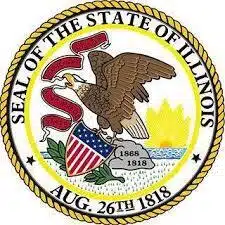Groups representing Illinois financial institutions, along with the Electronic Payments Coalition, say they will fight to overturn the Illinois Interchange Fee Prohibition Act, which was passed earlier this month and is set to go into effect July 1 next year.
Opponents of the bill are continuing an ad campaign to educate Illinois residents and small businesses about what the groups say are the complications the law will create. Passed as part of a larger bill at the tail end of Illinois Spring legislative session, the Interchange Fee Prohibition Act exempts merchants in the state from paying interchange on sales tax. In exchange, the law caps what merchants are paid by the state for collecting sales tax at $1,000 per month.
As a result, Illinois merchants will pay interchange only on the pre-tax amount of a purchase. Interchange refers to the fee, typically a percentage of the transaction, that sellers pay to processors on card transactions.

Prior to the bill’s passage, Illinois merchants paid interchange on the total of the receipt, including sales tax, and were reimbursed at 1.75% of the total sales tax collected monthly. The deal was reportedly one of the most generous sales-tax discount programs for local merchants in the country.
“Our aim is to make businesses and consumers aware of the damage this law can cause to the payments system in Illinois,” says Ben Jackson, executive vice president of government relations for the Illinois Bankers Association. “This is one state tinkering with a safe and secure global payment system.”
One of the complications related to enforcing the law is that Illinois, like many states, has different sales tax rates for different products, such as food, gas, alcohol and tobacco. That will make breaking out interchange on sales tax a cumbersome task for payment processors, the EPC says.
“It will also likely require merchants to have to purchase new POS equipment and upgrade their processing system,” an EPC spokesperson says. “Implementation will be costly and complicated, especially for small merchants.” While most states have passed laws capping the fee earned by merchants for collecting sales tax on behalf of the state, Illinois is the only state or country to have passed a law exempting merchants from paying interchange on sales tax, according to the EPC.
Illinois merchants pushed for the provision to help offset any financial losses they would incur from the sales tax discount cap, according to Jackson.
“Merchants, especially large ones, were receiving a substantial sum from the previous discount [formula],” says Jackson. “The cap was something Governor [JB] Pritzker has been pushing for and merchants pushed for the interchange exemption.”
With the Illinois legislature in adjournment until November, groups representing Illinois banks and other stakeholders in the payments industry see an opportunity to use the next five months to build public support for overturning the bill and even to challenge the law in court, Jackson says.
The EPC adds that, between now and July 1, 2025, it will continue to explore all avenues to see the interchange exemption is repealed.
So far, Jackson notes, the response to efforts to overturn the new law has been strong. “This is the fastest I have seen consumers and small businesses react [to a piece of legislation],” he says.




